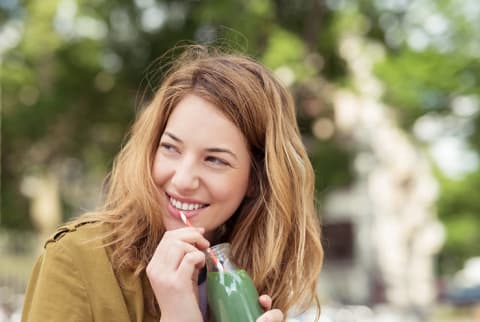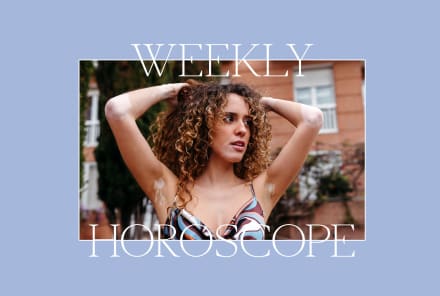Advertisement

I’ve been interested in natural health and healing ever since my first summer job stocking carob chips in a local health food store. I’d read a ton of books over the years, was eager to formalize my education at school and was proud of the letters "RHN" behind my name after I graduated.
But what I learned during my first year of actually working with real people was truly eye opening. Here are the three things that surprised me the most:
1. There is no perfect diet.
I signed up to formally study holistic nutrition, in large part because I wanted answers to my own questions about what the perfect diet was. What exactly should I be eating and what should I be avoiding to clear up my own health issues, lose weight, live longer and achieve optimal health?
I expected to come out of school with a clear understanding of what the perfect diet looked like and be able to share that knowledge with my clients. That didn’t happen.
What I realized was that there was no perfect diet that’s right for everyone at every time. Paleo, vegan, low fat, high carb, raw — they have all worked beautifully for someone, and been disastrous for someone else.
For a while I thought that maybe there were at least some basic principles that could be considered universally true, but even that’s not the case.
I can say, “stay away from sugar” to almost all of my clients, but when I’m working with an Ironman triathlete on his race day eating plan, I’m recommending, “glucose, glucose, glucose.”
There's a beautiful yogic saying that asks, “for whom and when?” and this is now how I approach every question and every client. We’re all individuals and we’re all affected very differently by what we eat, when we eat it and how we eat it.
What’s right for me today may not be right for me a month from now, and may never be right for you. Be open to listening to advice, but then learn how to listen to your own body and what it needs.
2. Weight loss has very little to do with food.
It’s no great surprise that weight loss is the number one thing people come to me for. In the beginning I dutifully created meal plans, talked to them about the importance of fibre and balanced blood sugar, and provided recipes for healthy meals and snacks that would fill them up and reduce their overall caloric intake.
And people lost weight ... until they didn’t.
For the first week I’d get happy emails about pounds lost and newfound energy and hope. And then around day eight I’d get this email, “I’m crying as I write this to you…” They’d tell me about how a stressful day at work or a fight with their boyfriend knocked them off their new, healthy path and sent them straight back to the tub of Ben & Jerry’s.
I learned that weight loss has very little to do with food and even less to do with willpower. Generally speaking, people already know how they need to eat to lose weight — it’s really not rocket science.
The reason so many people struggle is that long-term weight loss is nearly impossible to achieve without doing the hard work of tackling the underlying thoughts and feelings that you’re turning to food to avoid.
3. True health is about staying mindful.
I became a nutritionist because I believe that what we eat plays a fundamental role in our health and our ability to pursue the things in life that we’re passionate about and I still do.
But over the past year of working with clients directly I’ve also come to see that true health is about much more than what we eat.
You can eat the cleanest diet on the planet, but if you’re unfulfilled, angry, lonely or sad, it will manifest in your physical body and nothing you do to improve your diet will change that.
Today, the programs I design for clients include exercises in mindfulness, gratitude, compassion and connection because they are all integral pieces of the wellness puzzle and uncovering true health is impossible without addressing and incorporating each of them.
I love being a nutritionist, and I’m grateful for the education I now have under my belt. But looking back on my first year I’m regularly reminded of the old saying, the more I learn, the more I realize how little I know.
Watch Next
Enjoy some of our favorite clips from classes
Enjoy some of our favorite clips from classes
What Is Meditation?
Mindfulness/Spirituality | Light Watkins
Box Breathing
Mindfulness/Spirituality | Gwen Dittmar
What Breathwork Can Address
Mindfulness/Spirituality | Gwen Dittmar
The 8 Limbs of Yoga - What is Asana?
Yoga | Caley Alyssa
Two Standing Postures to Open Up Tight Hips
Yoga | Caley Alyssa
How Plants Can Optimize Athletic Performance
Nutrition | Rich Roll
What to Eat Before a Workout
Nutrition | Rich Roll
How Ayurveda Helps Us Navigate Modern Life
Nutrition | Sahara Rose
Messages About Love & Relationships
Love & Relationships | Esther Perel
Love Languages
Love & Relationships | Esther Perel


















